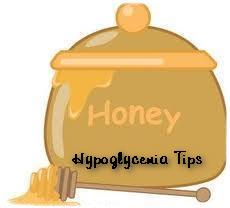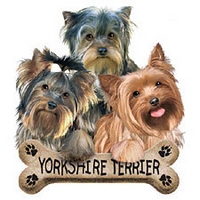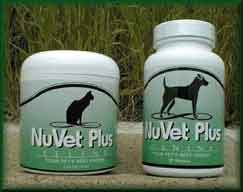Yorkshire Terrier Information!!
Yorkshire Terriers are fantastic little companion dogs.
The numerous desirable qualities and adaptability of the Yorkie's have become
one of the most popular of all dog breeds worldwide !!!

Yorkshire Terrier
Yorkshire Terriers are generally healthy, hardy little dogs, but as with all dog breeds they can have a few problems.
It's important to note that buying your Yorkie from a reputable Yorkshire Terrier breeder can save you much heartache in the future. Doing so will give you the best chance of bringing a physically and mentally sound puppy into your household.
Below are a few potential problems that you should at least be aware of:

It is important to clean your Yorkshire Terrier’s teeth regularly with a special dog toothbrush & paste, encouraging your dog to chew at hide based treats is also a good idea as this will help to reduce tartar building up.

Yorkshire Terrier Information & Training
Yorkie's respond best to plenty of encouragement, repetition and positive reinforcement.
You'll find that your Yorkie has no trouble learning proper household etiquette if kept on top of. Tasks such as sit, down, stay, come and fetch are all enthusiastically taken to by Yorkies.
Potty training can be done!!!!
Granted, Yorkies can be difficult to potty train but far from impossible. If you follow a proven house training schedule and stick with it, you will achieve the desired result.
**Most people give up or don't take them out to releive themselves enough. Remember they are Tiny dogs!!!
Grooming Tips!!
The Yorkshire Terrier is known for its long & flowing coat, to maintain this appearance the coat requires daily grooming. Their hair is incredibly soft & silky & is often referred to as being very similar to human hair. This is wonderful for people that are allergic to normal animal fur.
Their hair grows permanently & can become very easily matted so it needs regular trimming. . A lot of people mistake the band or bow placed so perfectly in the dog’s fur as just a decorative piece(top knot), in truth without it the dog’s hair would be constantly in its eyes.
Some owners prefer to keep their Yorkie's clipped short for ease, this is a good idea but you must ensure that you are prepared to keep this up every few months.
Before you brush your Yorkie lightly mist their coat with a solution of warm water & a normal mild dog conditioner or a good leave in conditioner, this will assist to soften the coat. If you groom the coat completely dry it can make it harder to work through any tangles & there is more chance that you will damage & break the hair.
After brushing your Yorkie's coat use a wide toothed comb to gently go over the coat again as this will ensure that you have removed all the tangles.
Grooming does not just involve the brushing & combing of your canine friend it should include checking your dog’s ears, eyes, teeth, paws & their nails. Of course these other checks do not have to be completed on a daily basis but it is a good idea to adopt a regular routine, perhaps every couple of days.
Take great care when clipping your dog’s nails if they are done frequently it makes it easier as you will not have to cut so much off each time you clip them, just ‘tip’ the very ends. If you cut too far down the claw you risk nipping the ‘quick’ this is the term for the nerves & blood vessels that supply the nail. If the worst happens & you accidentally clip the quick, do not panic, have some powder or flour on hand even talcum powder will do & pop some onto the claw in question. The powder will aid in coagulating the blood therefore stemming the flow
Do Not attempt to stick anything into your dog’s ears, simply just wipe around the outer ear & very gently around the inner ear. Look at your dog’s ears regularly & become accustomed to their normal appearance, this way you will be instantly aware if anything changes.
Information on Vaccinations.
*Puppies Must have a series of 3 Vaccinations, ** Pfizer animal health** Each administered 3 Weeks apart, Annual Re-Vaccination With A Single dose IS Reccomended by the American Veterinary Medical Association.
*Bordatella vaccine is given annually
Commonly seen contagious dog illnesses.
Here are the causes, symptoms and treatment for some of the most common, contagious dog illnesses that your puppy is vulnerable to* The importance of maintaining proper vaccination regimens.
*Distemper - Highly contagious viral disease. Can be transmitted through discharge from eyes or nose, through the air, or on shoes, hands etc. Affects the lungs, intestines and brain.
Symptoms include runny nose or eyes, coughing, vomiting and/or diarrhea, lethargy, loss of appetite. Can advance to include partial paralysis or seizures. Only treatment is supportive care such as encouragement to eat, fluid administration and veterinary care for seizures.
*Hepatitis - Highly contagious viral disease which affects the liver. Starts in tonsils, spreads to lymph nodes, bloodstream and liver. Can be transmitted through urine, feces and saliva.
Symptoms are similar to Distemper. Severe cases can progress rapidly and cause sudden death. Treatment is supportive care.
*Leptospirosis - Bacterial disease affecting the urinary system, including liver and kidneys. Mainly transmitted through infected urine.
Symptoms include loss of appetite, vomiting, lethargy, fever. More advanced symptoms include jaundice, increased thirst and dehydration due to frequent urination. Early antibiotic treatment can lessen the severity and/or duration of this dog illness.
*Parainfluenza - A highly infectious viral infection of the respiratory system. Easy airborne transmission through coughing and sneezing.
Symptoms include a runny nose, cough and fever. Treatment is mostly supportive, with antibiotics being given for secondary infections.
*Parvovirus - Extremely contagious viral disease that attacks the intestines, lymph nodes and bone marrow. Rarer variety can attack the heart resulting in sudden death. Easily transmitted through contact with infected feces, either directly or on shoes, hands etc. Black and tan breeds such as Doberman Pinschers and Rottweilers tend to be especially vulnerable, as are Pitbulls.
Symptoms include extreme lethargy, loss of appetite, and severe vomiting and diarrhea (often bloody) which results in dehydration. Treatment is mainly supportive and relies heavily on intravenous fluids to counteract dehydration and intravenous anti-biotics to attack sepsis infection.
*Rabies - Severe and usually fatal viral disease that affects the brain and nervous system. Transmitted through saliva. Once symptoms appear this illness is always fatal to both dogs and humans.
Symptoms - are behavioral and usually include unusual, irrational and frenzied aggression (if your dog was very shy you may see a increased affection or acute shyness if previously friendly). You may also see lack of co-ordination, seizures and the classic foaming at the mouth. There is no treatment and the disease is always fatal.
*Bordatella - Also known as Kennel Cough, this is a highly contagious bacterial infection which affects the respiratory system. Transmitted through saliva or nasal discharge.
Symptoms include runny nose and a lot of coughing and sneezing. Treatment in mild cases can just be supportive, but in severe cases or when secondary infections are present (such as pneumonia) antibiotics are used.
*Coronavirus - Highly infectious viral disease that affects the intestines. Transmitted through feces.
Symptoms - include diarrhea, lethargy, loss of appetite and dehydration. Treatment is supportive and concentrates on treating the dehydration.
*Lyme Disease - A bacterial infection that's transmitted by the bite of an infected deer tick. Can affect the heart, kidneys and joints.
Symptoms include swollen joints, apparent pain and lethargy.A 'bullseye' type rash may appear at the site of the tick bite. Treatment is usually a several week course of antibiotics.
*Coccidiosis - One of the parasitic dog illnesses which affects the intestinal tract of puppies (most often seen in puppies between 2 and 12 weeks of age). Caused by the presence of the coccidian protozoa. Transmitted through feces. Many adult dogs and puppies are carriers of this disease but don't show symptoms and eventually build up an immunity to it. If a young puppy is stressed, or unwell, the disease can 'flare up' as a result.Symptoms - include diarrhea, often pale grey to white in color and very smelly! Vomiting, lethargy and loss of appetite are common. Symptoms can be mild to severe. Treatment is supportive, with fluids being given to combat dehydration. Plus the use of a sulfa-based anti-biotic to treat the disease, usually a 5 - 7 day course.
*Giardiosis- also sometimes known as 'Beaver Fever'. Caused by protozoa Parasites called Giardia, which are found in rivers, streams, lakes and other bodies of water that contain traces of animal feces.
Symptoms - Many dogs with Giardia are 'a-symptomatic' which means that they don't show any symptoms, but continue to 'carry' and transmit the disease. However, the main symptom is diarrhea, which is often watery and foul-smelling. Vomiting, weight loss and lethargy may also occur. Treatment - antibiotics are required, and the most commonly used medications are Metronidazole (known as Flagyl) and Fenbendazole (Panacur). Both are effective, but your pup may need more than one round of treatment to eliminate the problem. Giardiosis can be transmitted to humans, so avoid swimming in water that could be infected, and follow excellent personal hygiene precautions of your dog gets this disease.
**** Nu Vet Plus Combats the onslaught of free radicals in our companion pets. This unique formula consists of precise amounts of vitamins, minerals and high-potency antioxidants that when combined, create a synergistic and powerful boost to the immune system.****
*** Don't forget to Order your Vitamins and use Our Code This does Validate your Guarantee!!!!***
See their site for more information * Ingredients, Info & Pricing
Click to Order
Or call 800-474-7044 code: 72153
Be aware that when you see breeders advertising
"Teacup Yorkie Puppy For Sale" or "Miniature Yorkshire Terriers"
these are all the same breed. These breeders have just concentrated on producing a smaller line.






